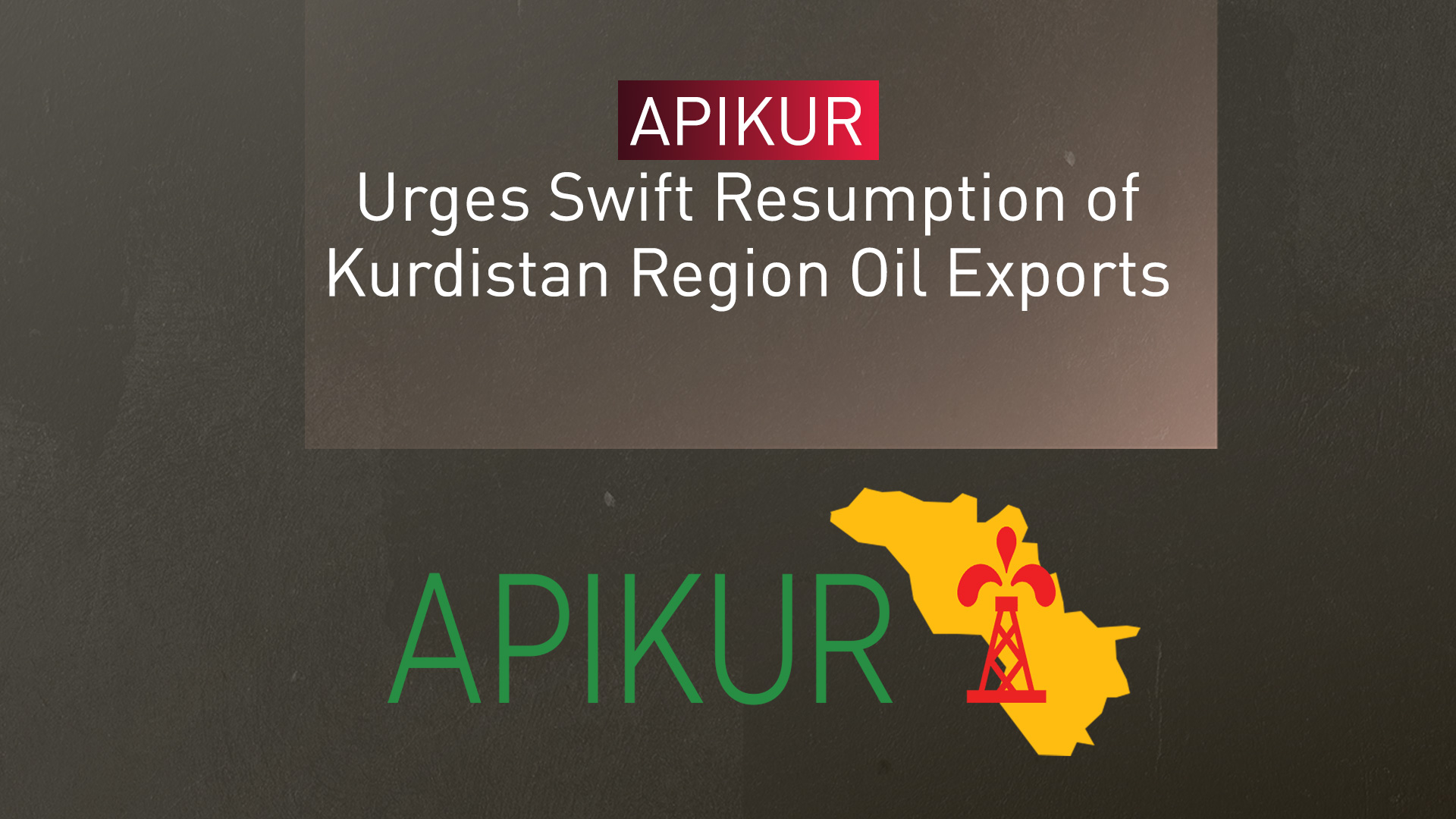APIKUR Urges Swift Resumption of Kurdistan Region Oil Exports
"We are ready to resume exports upon reaching agreements with the Government of Iraq and Kurdistan Regional Government. Protecting our rights and investments is essential," the statement added.

ERBIL (Kurdistan24) – The Association of the Petroleum Industry of Kurdistan (APIKUR) has reiterated its urgency to resume the Kurdistan Region oil exports, emphasizing the financial impact of the ongoing closure of the Iraq-Turkey pipeline (ITP).
In a statement released Thursday on the social media platform X, APIKUR highlighted that its member companies have been at the forefront of negotiations with the Iraqi government to restart exports. The group stressed that the suspension of exports has significantly harmed investments, with oil companies forced to sell at prices nearly half of the global market rate.
"Our investments have been fundamentally harmed by the closure of the Iraq-Turkey pipeline and being forced to sell at a significant discount to international market prices," APIKUR stated.
According to the association, member companies have put $400 million in investments on hold due to the prolonged halt in oil exports. APIKUR made it clear that these investments will only continue once the pipeline reopens and international oil companies (IOCs) receive assurances regarding their contractual rights.
"We are ready to resume exports upon reaching agreements with the Government of Iraq and Kurdistan Regional Government. Protecting our rights and investments is essential," the statement added, affirming that APIKUR has communicated these concerns to all relevant stakeholders.
The Iraq-Turkey pipeline has remained closed since March 2023, following a legal dispute between Iraq and Turkey over oil exports from the Kurdistan Region. While negotiations have taken place, no concrete timeline for reopening the pipeline has been announced.
APIKUR’s statement underscores the urgency of resolving the issue, as stalled exports continue to impact the region’s oil industry and economic stability.